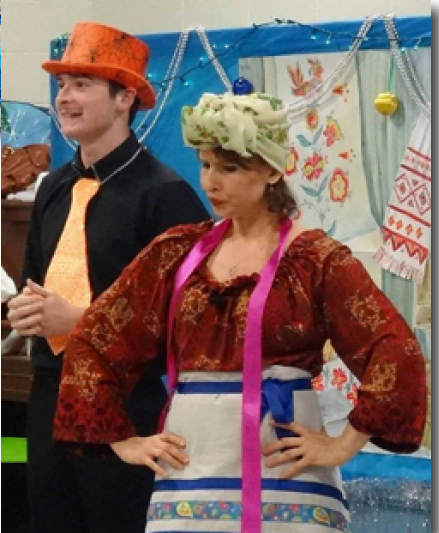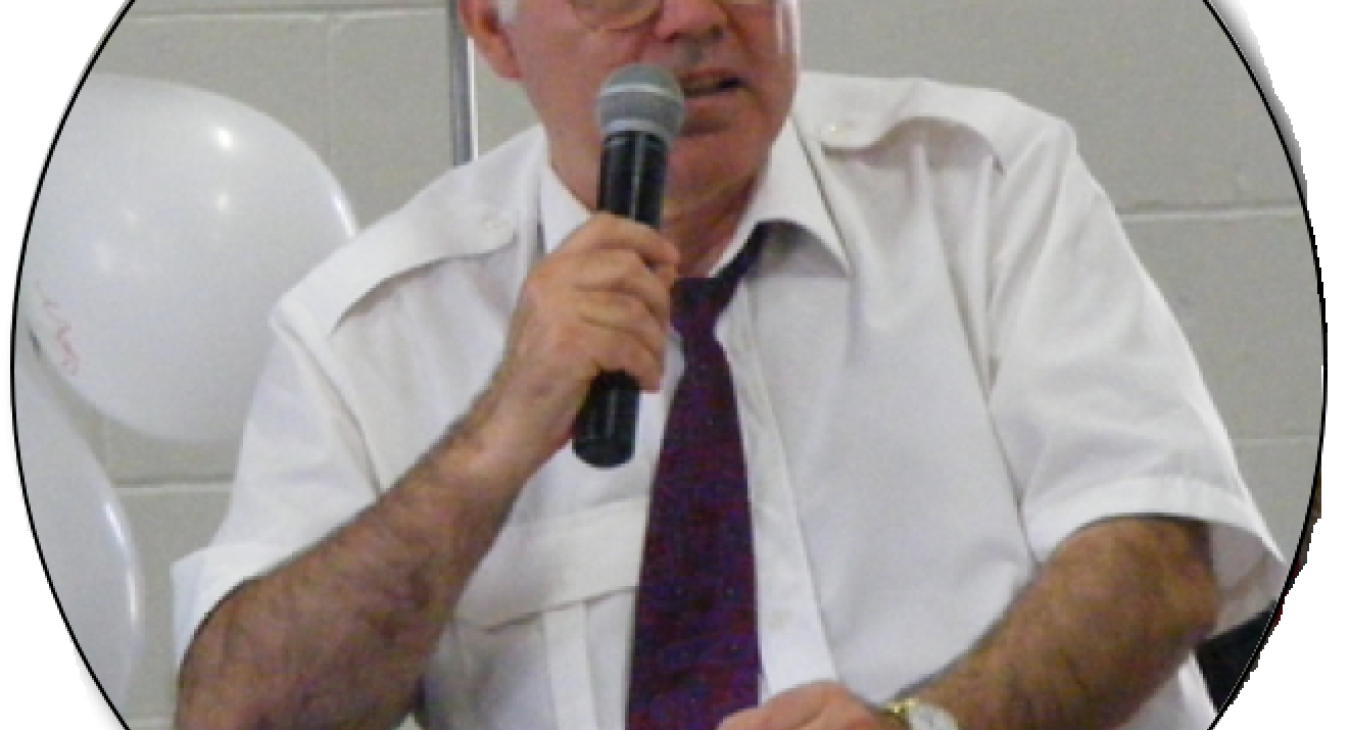Interview with the head teacher of the school "Success" Leonid Aleksandrovich Podolsky
The Ottawa Saturday school "Success" is considered one of the best. The interview offered to your attention confirmed me in this opinion, although I asked my interlocutor rather pointed questions. However, judge for yourself.
Correspondent: Leonid Aleksandrovich, how long has the school existed, how many years have you been working here?
Leonid Aleksandrovich: I have been working here since 2008. The school was created by its current director A.N. Frolova shortly before I arrived there.
Correspondent: What made "Success" successful?
L.A.: We are sensitive to the requests of children and parents. So, considering that a large group of children from Ukraine joined us, we opened a course for those who wished to study the Ukrainian language. And yet, we became successful thanks to our teachers and students. We have high criteria for selecting teachers - random people do not get to us.
So, at one time, a professor from Odessa University, a doctor of philological sciences, worked with our children. We entrusted mathematics to a candidate of economic sciences. We have teachers who, in addition to pedagogical, have higher psychological, theatrical or musical education.
Corr.: Wait, do you want to say that you have never made mistakes in selecting personnel?
L.A.: It happened. But extremely rarely. Now our "mistakes" are jealously watching us from afar. And "Success" remains Success.
Corr.: It is clear with the teachers. Are all your students elite too?
L.A.: You know, we are not afraid of the word ELITE. Those parents who bring their children to our school understand that knowledge cannot be superfluous. They directly connect the future of their children with obtaining higher education.
Correspondent: And how can you, a Saturday school, help with obtaining higher education?
L.A.: We have been helping our children enter prestigious universities for a long time. The first graduation from the Credit Class was back in 2014.
Correspondent: Wait! Let's go into more detail from here. What are Credit Classes, how exactly do they help with entering universities? L.A.: Credit programs for studying a foreign language (in our case, Russian) are intended for students in grades 9-12. To get the final grade, you need to study in this program for 3 years.
Corr.: Well, okay, the graduate got, for example, his 90 points. And then what?
L.A.: Usually, this grade is higher than 90. After all, most children study their native language or a language they know well. And universities select six from the profile and highest grades of the school Diploma. The average grade is determined by these six grades. The higher the average grade, the more chances you have to get into a prestigious university and receive a decent state subsidy for education.
Corr.: That's great! But why should children go to your school for a loan? Why should they come to you at all? L.A.: Because we study not only the language, but also classical Russian literature. Moreover, we do not imitate studying, but study for real: with reading texts, analyzing them. We use non-standard forms of teaching: we introduce elements of theater, conduct lessons where we turn into heroes of the story and even put on costumes of the studied era (fortunately, the school has a large supply of such costumes), conduct literary trials of characters. In other words, we learn about life using the example of heroes of classic Russian books.
Corr.: But for all this you need to know the texts well. How do you make our children read?
L.A.: We don’t force them. We interest them. We captivate them.
Corr.: What do they read?
L.A.: I'll list them off the top of my head: "The Minor", "Onegin", "A Hero of Our Time", "Woe from Wit", "The Government Inspector", "The Storm", "Asya", "The Cherry Orchard", "Ionych", the poets of the Silver Age, "The Master and Margarita", "The Eldest Son", "Sotnikov"...
Corr.: Enough, thank you. I understand everything. Read all of this. Do you have any special children?
L.A.: It turns out so. And I'll also add that each of our five graduating classes from the 12th grade is unique. The guys became such good friends that even several years later they maintain relationships with each other, come to school, remember our performances “The Three Musketeers”, “The Night Before Christmas”, “Cinderella”, “The Circus Lights Up”. And how can they forget the graduation balls, where our graduates danced with their mothers, and the charming graduates – with their fathers?! And the cheerful KVNs, also with the participation of teachers and parents?
Corr.: Wait, balls, KVNs. All this had to be prepared.
L.A.: Right! The guys did not go home after the main classes. For senior students there were drawing, drama, and dance lessons. That's where they prepared.
Corr.: Another important question. What if one of the guys knew the language worse than the others? How do we deal with students like that?
L.A.: We taught them a separate program. And then the kids got into it.
Corr.: You haven't announced recruitment for the Credit classes for the last two years.
L.A.: Yes, there was a forced break due to Covid, and our senior students studied in other schools. So, I want to tell the kids and their parents: we are resuming the Credit program. Our students have grown up, and if we get a few more senior students, we will open the Credit program already in September. Otherwise, we will definitely do it in a year. But we will definitely have Credit classes.
Corr.: Can I clarify: who will teach children in the Credit class?
L.A.: We plan to attract a qualified teacher of Russian from Carleton University, Tatyana Petrovna Dunevskaya. And your humble servant will not remain on the sidelines - after all, he has many years of experience teaching Russian literature in different countries. For the last 22 years, I have been teaching children here in Ottawa. Oh, by the way, I almost forgot - in September we are returning to the comfortable building of the French Cultural Centre at 2720 Richmond rd.
Corr.: Sorry, a delicate question. In connection with the recent sad events in Europe, is interest in studying the Russian language declining?
L.A.: I don’t think so. After all, great Russian literature teaches us humanity and wisdom. And it also teaches us to think. I am sure that our students will figure it all out. With our help.
Corr.: If my eighth-grader grandson wants to attend your school, then...
L.A.: ... of course! You are welcome. Eighth-graders are our golden fund. They are future students of credit classes, participants in a very interesting literary program. Your grandson can call (613) 297-5771, Tatyana Petrovna or write to me at leopodolskiy@yahoo.com, and Oksana Nikolaevna, 613-218-8805, will be happy to answer any questions about our school.
Corr.: A...
L.A.: and your grandson's friends can also join us. In our school family, we are glad to have every student of any age.
Corr.: My friend asked you to find out if her grandson (he is 4 years old) can enroll in your "Uspekh".
L.A.: Of course, you can. After all, our classes begin with Preparatory. And then we study them until they enter Universities.
Corr.: Thank you, Leonid Aleksandrovich, for an interesting and useful conversation. Success to "Success" and to you personally.
L.A.: You are always welcome. And do not forget that Success is near.
The conversation was recorded by Victoria Yuniter.


